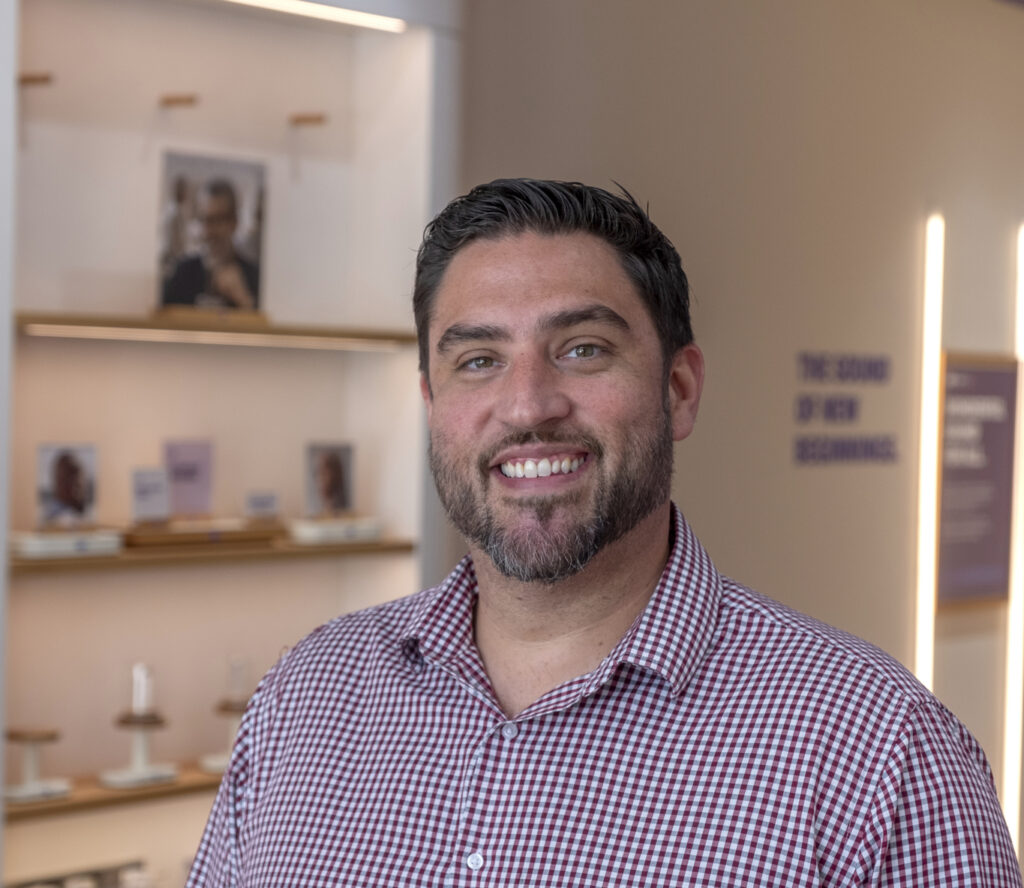Hearing loss often creeps in so gradually that it goes unnoticed until you’re frequently asking others to repeat themselves.
Nearly 20 percent of the global population – around 1.5 billion people – experience some level of hearing impairment, which is characterized by hearing thresholds of 20dB or better in both ears, meaning there needs to be 20 decibels of sound energy for the person to hear. This condition can significantly impact communication, leading to frustration, social isolation and loneliness, especially among older adults.
In recent years, the connection between hearing loss and dementia has become a significant area of research within the medical community. As the global population ages, understanding factors that contribute to cognitive decline, including dementia, is becoming ever more crucial. Hearing loss, once considered a mere inconvenience of aging, is now recognized as a potentially modifiable risk factor for dementia.
The Lancet, one of the world’s top medical journals, just published an update to its 2020 Dementia Study citing even stronger evidence that treating hearing loss and wearing hearing aids decreases the risk of dementia.
The original 2020 study by Frank Lin and colleagues at John Hopkins University found that older adults with untreated hearing loss were significantly more likely to develop dementia compared to those with normal hearing. Those with mild hearing loss had nearly twice the risk of developing dementia, while those with moderate and severe hearing loss were three to five times more likely to develop the condition. Specifically, for every 10dB decrease in hearing ability, the risk of dementia can increase by 24 percent.
It also found that the use of hearing aids is effective in people with hearing loss, mitigating the additional risk factors for dementia.
“With patients who are treating their hearing loss, the cases showed that there was a 32 percent lower prevalence of dementia,” said Brian Cespedes, hearing instrument specialist with HearUSA. “The study included about 2,400 patients over the age of 70 with hearing loss.
“Hearing loss isn’t just a condition of the ear – it’s a condition of the brain. If you have deficit in a severe range, you aren’t receiving stimulation to those auditory nerves that send the information to the brain and they die off quicker,” Cespedes continued.
“When you wear a hearing aid that’s specifically tuned to the frequencies that you have the deficit in, you’re better able to stimulate the nerves that are in the greatest need of stimulation, and they ultimately work more normally through hearing aid usage. Hearing loss is also linked to depression caused by isolation. This also can contribute to cognitive issues. It’s like the old saying – you use it, or you lose it.”
Any untreated hearing loss, whether it’s a conductive hearing loss, a mixed hearing loss or a sensorineural loss, which is the most common, leads to the same conclusion that you are not receiving the appropriate level of stimulation, which increases your risk of dementia.
With evolving technology, hearing aids are better able to help people in more difficult environments like a crowded room with a lot of background noise. The sophisticated electronic devices are able to decipher ambient noise from audible conversation, allowing people to continue participating in social environments that help keep them more youthful and healthier.
“The faster we can address the hearing loss, the better, because unfortunately there is no way to get back what is lost,” Cespedes stressed. “Hearing aids are the only clinically proven way to prolong the life of your natural hearing and through auditory stimulation help you hold on to what you have for a longer period.”
Given the strong evidence linking hearing loss to dementia, early intervention is crucial in mitigating the risk. Numerous studies, including a recent study published in the Journal of the American Geriatrics Society, concur that older adults who used hearing aids had a significantly lower risk of cognitive decline compared to those who did not use them.
The link between hearing loss and dementia is a compelling example of how a seemingly minor health issue can have a profound effect on cognitive health. Addressing hearing loss is essential for maintaining the quality of life and for protecting cognitive function as we age.
“I really do believe that there should be a proactive rather than a reactive approach to hearing loss,” Cespedes continued. “So many times, hearing loss happens at such a slow progression that we fail to recognize it. It’s not like a sudden hearing loss where you wake up and can’t hear anything.
“Most of our clients come in because a friend or spouse has noticed changes in their hearing. I think everyone should get a baseline hearing exam starting at age 50 and if it’s perfectly normal come in every two to three years. A complete audiogram should be done in an office with ear conduction, bone conduction and word recognition.
“Most of our clientele are over the age of 60, but I anticipate that changing to a much younger demographic in the next 10 years primarily because of the increased use of iPod, headphones and such. The iPhone already has a feature that will notify you if you pass your decibel limit for the week.
“My advice is to not wait until it gets to the point where it’s a problem. Start by getting a baseline test. Anyone with a Medicare card should be getting a hearing test because it should be covered.
And at HearUSA we don’t charge anyone for basic testing and evaluations.”
Early detection, intervention, and awareness are key strategies in reducing the risk of dementia associated with hearing loss, offering hope for healthier aging and a better quality of life for millions of individuals worldwide.
Brian Cespedes is available for consultation at HearUSA Center, 2140 59th Ave., Vero Beach. The phone number is 772-617-4488.

